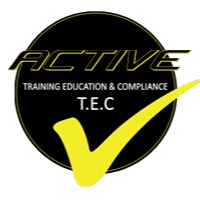
How do I become a spotter catcher?
Certificate II in Conservation and Ecosystem Management
- There are no mandated entry requirements.








Certificate III in Marine Habitat Conservation and Restoration
- There are no mandated entry requirements.
 Envirotech Education
Envirotech Education
Course in Workplace Spotting for Service Assets
- There are no mandated entry requirements.








Certificate III in Conservation and Ecosystem Management
- There are no mandated entry requirements.








Certificate III in Conservation and Ecosystem Management (Ecological Restoration)
- There are no mandated entry requirements.
 ARO College
ARO College
Related occupations
Regional Coordinator
A Regional Coordinator oversees local operations, enhancing service delivery through project management, staff training, and community engagement.
Conservation Manager
A Conservation Manager protects environmental areas from degradation, focusing on wildlife and resource preservation while liaising with stakeholders.
Conservation Trainee
Conservation Trainees assist in environmental projects while training, requiring passion for nature, teamwork, and ability to work outdoors.
Volunteer Firefighter
A Volunteer Firefighter responds to emergencies, extinguishing fires and conducting rescues while working as a team and adhering to safety procedures.
Park Ranger
Park Rangers maintain national parks, protect wildlife, assist with conservation projects, and educate the public about the environment.
Land Manager
A Land Manager oversees natural resource areas, ensuring conservation and liaising with stakeholders while possessing strong leadership and communication skills.
Indigenous Land Worker
An Indigenous Land Worker preserves natural resources and heritage sites in Aboriginal communities, requiring physical fitness and strong communication skills.
Ecologist
An Ecologist studies ecosystems and biodiversity, conducts field surveys, analyses data, develops conservation plans, and advises on sustainability.
Forester
A Forester manages forests for sustainable use, restoration, and conservation, conducts ecological assessments, and ensures environmental compliance.
Conservation Officer
Conservation Officers create and manage initiatives to safeguard the environment and natural resources through community engagement and fieldwork.
Land Management Officer
A Land Management Officer manages sustainable land use, develops strategies, ensures legal compliance, collaborates on assessments, and promotes biodiversity.
Soil Scientist
A Soil Scientist studies soil properties and health, conducting fieldwork and analysis to support sustainable land use and agricultural practices.
Resource Economist
A Resource Economist evaluates the economic aspects of natural resources, conducting studies and providing recommendations for sustainable management and allocation.
Conservationist
A Conservationist protects natural habitats and wildlife, conducts research, and advocates for sustainable practices to maintain biodiversity.
Conservation Biologist
A Conservation Biologist studies ecosystems and wildlife, conducting fieldwork and data analysis to develop strategies for conserving biodiversity.
Soil Conservationist
A Soil Conservationist manages soil resources, develops conservation plans, conducts soil tests, and advises on sustainable practices to prevent degradation.
Common questions
How much does a Spotter Catcher earn?
In Australia, a full time Spotter Catcher generally earns $1,050 per week ($54,600 annual salary) before tax. This is a median figure for full-time employees and should be considered a guide only. As you gain more experience you can expect a potentially higher salary than people who are new to the industry.
What are the job opportunities for a Spotter Catcher?
The number of people working in this field has dropped slightly over the last five years. There are currently 4,200 people employed in this industry and many of them specialise as a Spotter Catcher. Spotter Catchers may find work across all regions of Australia.
Source: Australian Government Labour Market Insights
How do I become a Spotter Catcher?
If you’re interested in working as a Spotter Catcher, consider enrolling in a Certificate III in Conservation and Land Management. You’ll learn more about biodiversity and restoration work and gain practical skills in this field. You could also consider a Certificate III in Marine Habitat Conservation and Restoration.
Further reading


Careers for people who love the outdoors
14th September 2021)

